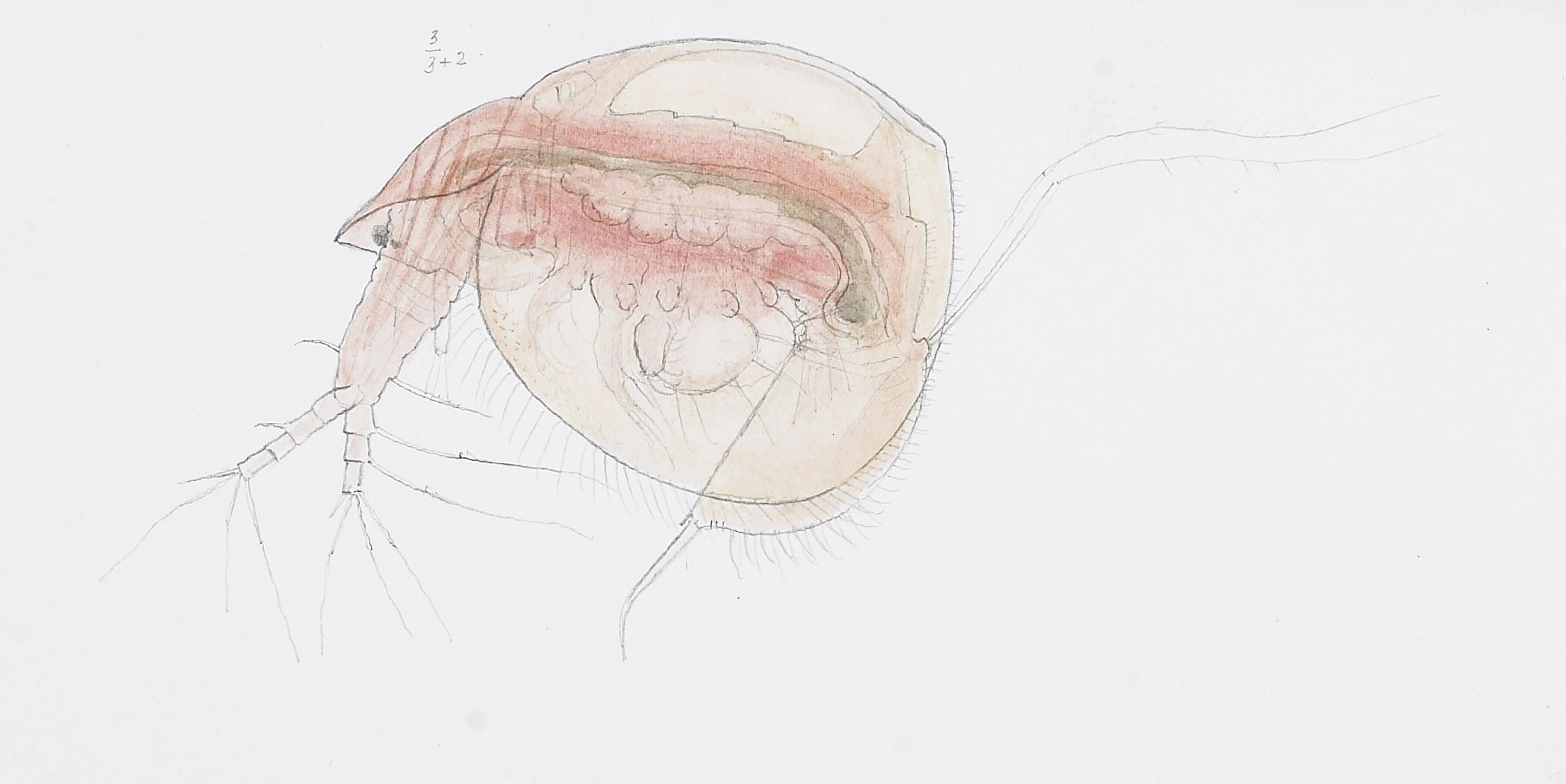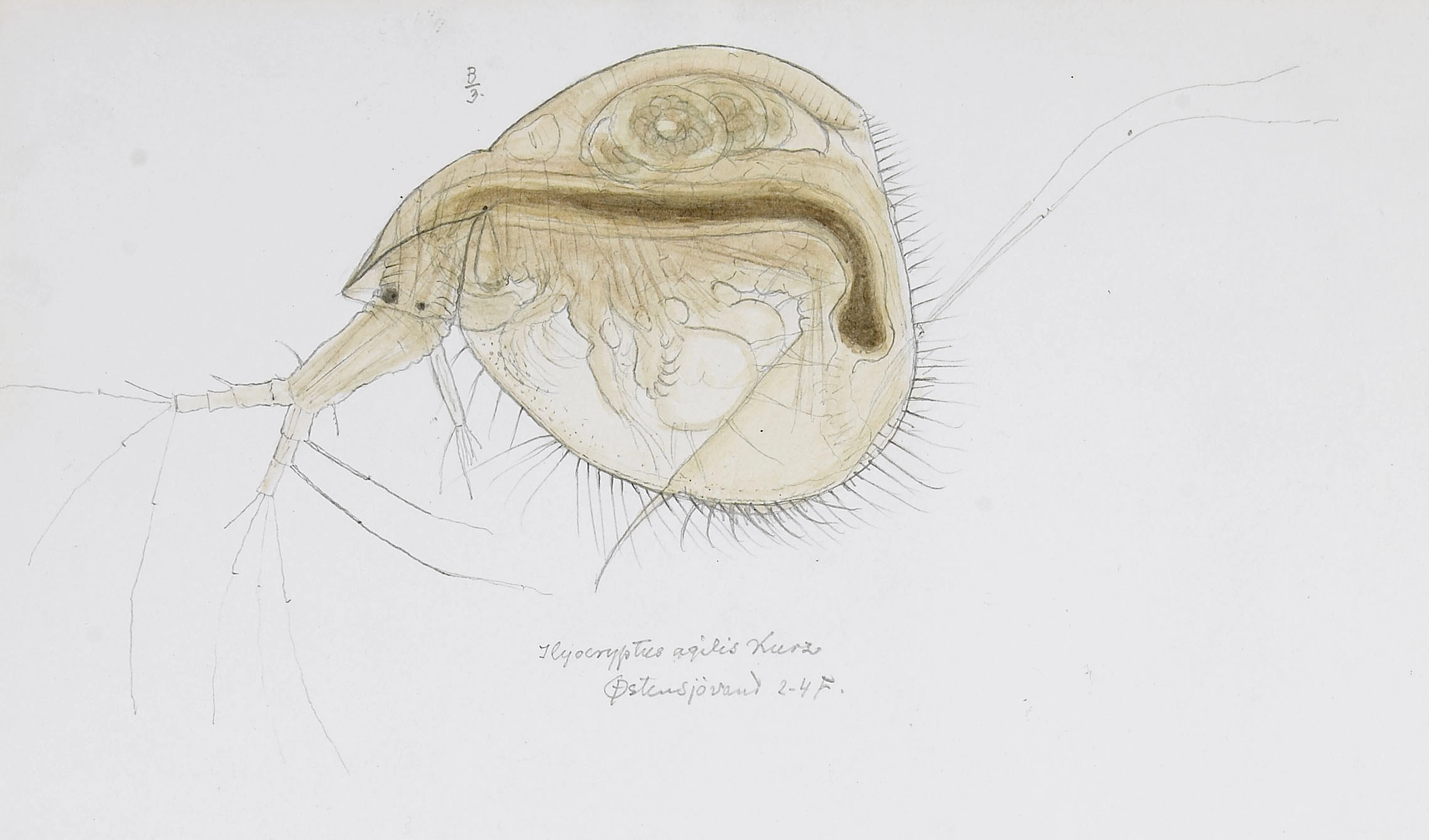Ilyocryptus sordidus
Ilyocryptus sordidus, which lives in the mud, has an intensely crimson colour. The spine at the base of the abdominal claw is long and slender and can be used as a criteria to identify the species.
Key characteristics
Its head is relatively small and the dorsal edge is evenly curved. Posteriorly it ends in a deep incurvature between the head and the thorax. The second pair of antenna are especially short and coarse. Its postabdomen is especially large with an incurvature in the middle where the anus lies. Anteriorly it has a double row of equally long, straight spines, and posteriorly to it a quadruple row, of which the seven in the lateral row are especially long and thin. Further towards the tip there are six small denticles on each side. The spine at the base of the abdominal claw is long and slender. I. sordidus has an intensely crimson colour.
Female: Length 0.6–1.2 mm
Male: Length 0.4–0.8 mm
Ecology and distribution
I. sordidus is rare and only found in 1.4 % of the water bodies. Except for one record from a pond, all are from lakes. The records are mainly from the southern part of the country, from localities situated between 19 and 866 m a.s.l. As with other species in this genus, it may be underestimated because it lives in the mud and may therefore not be trapped with a net haul. It is found in water of varying pH (4.2–7.1) and conductivity (1–43 mS/m).
| Vitenskapelig navn | < 4,5 | 4,5 - 4,9 | 5,0 - 5,4 | 5,5 - 5,9 | 6,0 - 6,4 | 6,5 - 7,0 | 7,0 - 7,4 | > 7,5 |
|---|---|---|---|---|---|---|---|---|
| 1 | 3,4 | 3,4 | 1,2 | 1,5 | 1,1 | 1,1 | 0 |
| Vitenskapelig navn | < 1,0 | 1,0 - 1,4 | 1,5 - 1,9 | 2,0 - 2,9 | 3,0 - 3,9 | 4,0 - 4,9 | 5,0 - 6,9 | 7,0 - 9,9 | > 10,0 |
|---|---|---|---|---|---|---|---|---|---|
| 0,4 | 0,4 | 0 | 1 | 3,8 | 2,5 | 2,4 | 0,9 | 2,2 |
| Vitenskapelig navn | < 0,01 | 0,01 - 0,09 | 0,1 - 0,9 | 1,0 - 9,9 | 10,0 - 99 | 100 - 999 | > 1000 |
|---|---|---|---|---|---|---|---|
| 0 | 0,5 | 0 | 1,6 | 1,7 | 2,9 | 2,2 |
| Vitenskapelig navn | < 100 | 100-299 | 300-499 | 500-699 | 700-999 | >1000 |
|---|---|---|---|---|---|---|
| 1,4 | 2,9 | 1 | 0,7 | 0 | 0 |
Look-alikes
Ilyocryptus acutifrons and I.agilis

